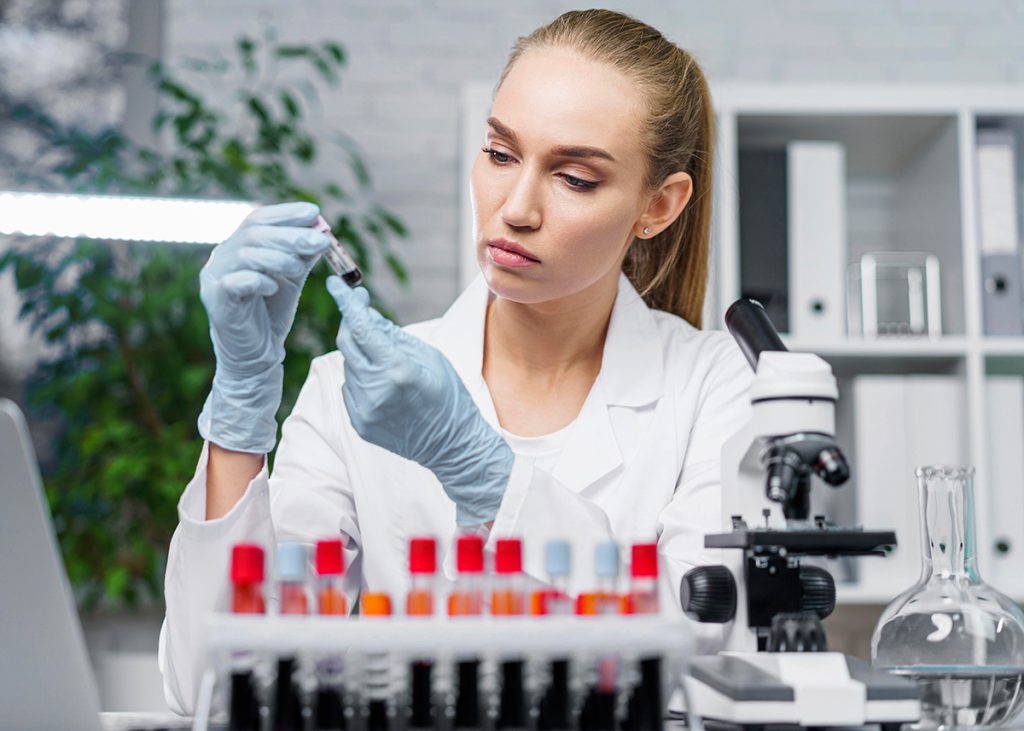Hormones like human growth hormone (HGH) and testosterone play a crucial role in maintaining energy levels, muscle mass, fat metabolism, libido, mood, and overall well-being. However, as we age, these hormones naturally decline, leading to symptoms such as fatigue, weight gain, decreased strength, brain fog, and low libido.

If you’re experiencing these symptoms, HGH and testosterone testing can provide valuable insights into your hormonal health and help determine if hormone optimization therapy is right for you.
Why Get HGH & Testosterone Levels Tested?
Hormonal imbalances can affect men and women at any age. Testing these hormones helps:
✔ Identify low HGH or testosterone levels
✔ Diagnose hormone deficiencies or imbalances
✔ Determine if hormone therapy is necessary
✔ Optimize performance, energy, and well-being
Many people mistake symptoms of hormone imbalance for normal aging, but the right testing can uncover hidden deficiencies and help restore vitality.
Signs You May Have Low HGH or Testosterone
If you have low HGH or testosterone, you may experience:
❌ Fatigue & low energy despite getting enough rest
❌ Loss of muscle mass & increased body fat, especially around the midsection
❌ Decreased libido & sexual dysfunction
❌ Mood swings, depression, or irritability
❌ Brain fog, poor concentration & memory issues
❌ Slow recovery from exercise or injuries
❌ Weakened immune system & frequent illnesses
❌ Poor sleep quality & difficulty falling or staying asleep
If these symptoms sound familiar, hormone testing can provide clarity and guide potential treatment options.
What Does HGH & Testosterone Testing Involve?
1. Growth Hormone (HGH) Testing
HGH is essential for cell regeneration, metabolism, and overall vitality. Since HGH levels fluctuate throughout the day, direct testing is challenging. Instead, doctors measure biomarkers that reflect HGH activity, such as:
✔ IGF-1 (Insulin-Like Growth Factor-1) – The most reliable marker of HGH production.
✔ GH Stimulation Test – Measures the body’s ability to produce HGH.
✔ GH Suppression Test – Determines if HGH levels are too high (common in growth disorders).
Low IGF-1 levels indicate HGH deficiency, which can contribute to fatigue, weight gain, and aging-related issues.
2. Testosterone Testing
Testosterone is crucial for muscle growth, fat metabolism, libido, and mental clarity. There are different types of testosterone tests:
✔ Total Testosterone – Measures the overall amount of testosterone in the bloodstream.
✔ Free Testosterone – Measures the active testosterone available for use by the body.
✔ Bioavailable Testosterone – Includes free testosterone plus weakly bound testosterone, which the body can use.
Low testosterone levels can lead to reduced vitality, muscle loss, and mood imbalances.
How Are These Tests Performed?
HGH and testosterone levels are typically measured through a simple blood test. Some specialized tests may require fasting or multiple blood draws throughout the day to get an accurate reading.
Your healthcare provider may also check related markers, including:
🩸 DHEA – A precursor hormone that influences HGH and testosterone production.
🩸 Estrogen levels (for men & women) – Hormonal balance is key for both genders.
🩸 Cortisol – Chronic stress can suppress testosterone and HGH.
Who Should Get HGH & Testosterone Testing?
You should consider hormone testing if you:
✔ Feel constantly fatigued or struggle with low motivation
✔ Experience muscle loss and difficulty burning fat
✔ Have a low sex drive or erectile dysfunction
✔ Struggle with mood swings, anxiety, or depression
✔ Notice slower recovery from workouts or injuries
✔ Have trouble sleeping and poor mental clarity
Whether you’re experiencing symptoms or simply want to optimize your health, testing is the first step in restoring hormonal balance.
What Happens After Testing?
Once your results are available, a healthcare provider will:
✔ Analyze your hormone levels
✔ Discuss treatment options if an imbalance is detected
✔ Recommend lifestyle changes, supplements, or hormone therapy
If levels are low, options such as testosterone replacement therapy (TRT) or growth hormone peptide therapy (e.g., Sermorelin, Ipamorelin/CJC-1295) may help restore optimal hormone function.
Take Control of Your Hormonal Health
At THT Center, we offer comprehensive hormone testing to help you understand your body and optimize your well-being. With state-of-the-art diagnostics and personalized treatment plans, we help you feel your best at any age.
Contact us today to schedule your hormone test and take the first step toward renewed energy, strength, and vitality!






